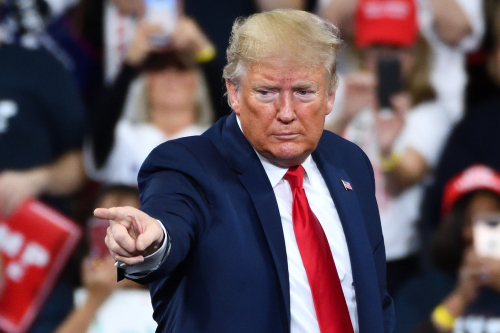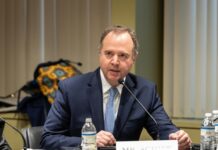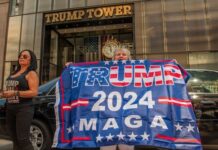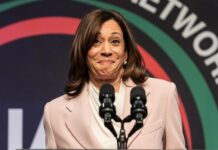
In a time where political discourse has become intensely polarized, a resounding voice has cut through the noise to address the creeping influence that threatens the very fabric of American democracy. Former President Trump, in a recent address, issued a stark warning against an ideology that has, throughout history, been antithetical to American values—communism. His message is not just rhetorical flair but a rallying cry for those who cherish liberty and the free society that generations have fought to preserve.
At the heart of Trump’s argument lies the belief that the United States has been gradually infiltrated by radical left-wing ideology, one that undermines the constitutional principles of individual freedom and market-based economics. He points out that subtle shifts in policy and culture have opened the door to more intrusive government control, stifling the spirit of enterprise and personal responsibility that has historically been the engine of American prosperity.
As if you didn’t need more proof of President Trump’s comments about Communism in America…
Here's Letitia James saying she will seize his assets pic.twitter.com/iSALx7sccK
— Sebastian Gorka DrG (@SebGorka) February 21, 2024
Furthermore, Trump criticizes the educational system for its role in this ideological shift. He suggests that education, rather than being a place of diverse thought and the pursuit of truth, has become a breeding ground for far-left ideas that condition the youth to accept, if not embrace, ideologies incompatible with American constitutionalism. This trend, in his view, is not a mere academic phenomenon but a clear and present danger to American society’s future.
Trump’s commentary extends to the realm of economic policy, where he blasts the left’s embrace of socialist-like programs, which promise government dependency over personal ingenuity. He argues that policies favoring high taxation and excessive regulation have a chilling effect on economic growth and innovation—principles that have long set America apart as a haven for those eager to work hard and succeed on their own merits.
GUESS WHAT DAY IT IS? 🥁……
ITS TRUMP DAY!!!!! 🇺🇸💪😎🎇🥳
"The people get it" They locked us down! They tried to make us comply! They silenced us and stole the election trying to trap us into agenda 2030 communism! But we never gave up! We are UNBREAKABLE! 💪🇺🇸 pic.twitter.com/4IA8oOdE5W— The Liberal Caveman (@liberalcaveman1) February 21, 2024
On the international stage, Trump asserts that the left’s approach weakens the United States’ stance against authoritarian regimes. He espouses a vision of strength and clarity in foreign policy that contrasts sharply with what he perceives as the opposition’s favoring of appeasement and globalist policies at the expense of national sovereignty and security.
Trump also revisits familiar themes of border control and immigration, emphasizing the need for strict measures to protect American jobs and maintain social cohesion. He ties these issues to the broader struggle against far-left ideology, suggesting that unchecked immigration serves as a vehicle for importing values that could dilute or even dismantle the principles upon which the nation was built.
In his speech, Trump does not merely diagnose problems; he calls for a resurgence of conservative values and policies as the antidote to the left’s overreach. He speaks of renewal and the reaffirmation of the core tenets of conservatism—limited government, individual liberties, free markets, and a strong national defense—as vital to countering the radical agenda.
Finally, Trump’s message is one of unity and resolve among conservatives to stand firm against the tide of left-wing ideology. He invokes a sense of urgency, encouraging conservatives to organize and act to preserve the American way of life. Trump’s vision is a call to reclaim from the left a nation that values freedom, responsibility, and the indomitable American spirit. His words serve as both warning and inspiration, beckoning all who hold dear the founding ideals of the United States to once again rise to their defense.











